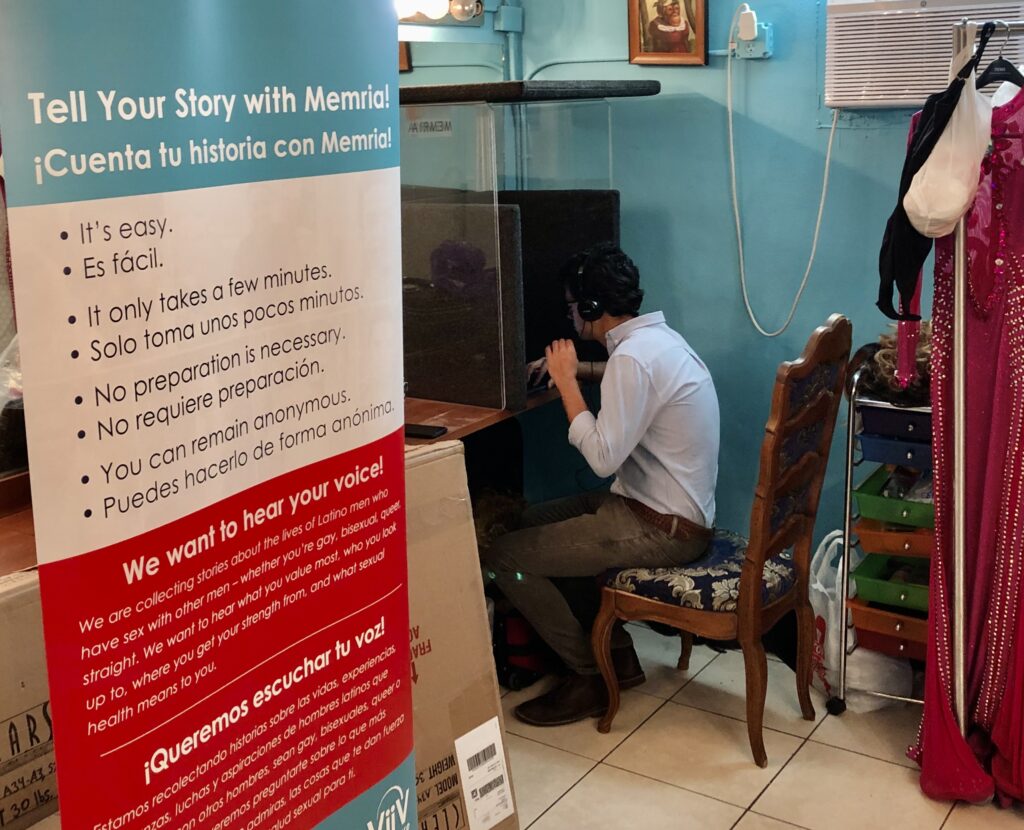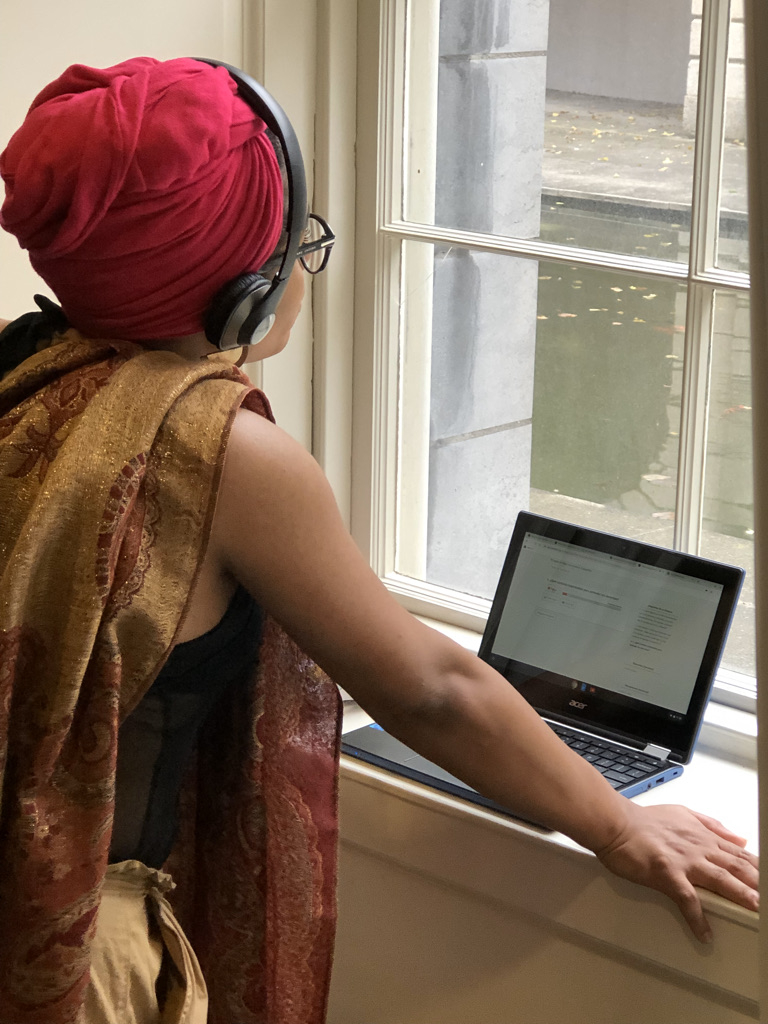Back in 2020, Feedback Labs launched the Feedback Tools Repository to help link nonprofits, foundations, and governments with technical tool providers that have a proven track record. One of those organizations was Memria, a storytelling platform for collecting, curating, and sharing personal stories via audio recordings and photographs.
Memria enables partners like libraries, NGOs, historical societies, museums, and philanthropies to listen better through voice recordings. Participants or ”storytellers” are invited to provide personal narratives that can be used to better understand communities and their needs and inform organizational decision making.
We recently had a chance to catch up with Memria’s CEO and founder, Louis Bickford to hear about the origins, benefits and future plans of this handy software enabled service tool used for collecting invaluable feedback!
Feedback Labs: Can you tell us a little about your background and how the idea of Memria was born?
Memria: I spent 20 years working in the human rights field, specifically with truth and reconciliation commissions, and I came to appreciate the power of personal stories narrated by people in their own voice. These kinds of stories can serve two powerful functions: they can provide insight and they can foster engagement. This is because at the core of our work is the idea of listening to people, which is something that we often don’t do enough of in the world. It is relatively easy for people to speak, and even to tell a story, but the challenge is how to be sure that the right people are listening. We have focused on this question more than anything else, and have been building software and services to facilitate sharing of personal stories and listening to them in ways that make people feel heard. For example, we emphasize short-form story-telling (3-5 minute responses to prompts) to encourage listening.
In a way, truth commissions have the same challenge: these kinds of institutions have been created in many countries (Canada, Chile, Morocco, Peru, South Africa, Timor-Leste, and the United States, to name a few) in order to better listen to victims of human rights abuse and to incorporate the voices of those most affected by violence into national opr societal narratives. Although we also work on these kinds of initiatives (for example, we have a project with the truth commission of Colombia, VivaVoz), most of our work is not on the societal level but rather for communities associated with community organizations, and for nonprofits interested in better engaging their constituencies.

Feedback Labs: How can Memria be used to collect feedback?
Memria: Our story-sharing and story-listening methods are used to collect feedback in two ways. First, we help our partners gain insight that is often different from (or reinforces) insight gathered from surveys, focus groups, or interviews. We put a lot of emphasis on the design of questions. For example, we encourage our partners to use fairly open-ended questions that elicit subjective, personal, emotional, first-person stories. One of our partners, the Literacy Assistance Center, has launched the Literacy & Justice project to “build an online collection of adult education students’ stories, in their own powerful voices … sharing their stories on the impact of adult education in their lives and communities”. They use this collection to better understand and to engage their community.
Speaking of which, our second goal is also related to feedback: community engagement. We believe that feedback is improved when people feel a sense of belonging and connection to institutions. Our software and services help our partners engage community members and constituencies because they are asking people to speak about themselves and–most importantly–because they are being heard.
 Feedback Labs: What are some of your favorite examples of organizations that have successfully used Memria to collect feedback? What did those organizations learn from the feedback they collected?
Feedback Labs: What are some of your favorite examples of organizations that have successfully used Memria to collect feedback? What did those organizations learn from the feedback they collected?
Memria: One of my favorite examples of our work is a project we did with a public health agency that wanted to do a “listening tour” focused on the needs and challenges facing HIV-positive men. Their goal was to help design programs and funding strategies to improve access to relevant healthcare, wellness, and medical services. They had already done some surveys and focus groups, but they were attracted to the idea of story-collection. We helped them collect 300 short-form stories and used our tools to help analyze these stories for patterns. Stories can be published for public listening, or kept private and in this case, they chose to keep them private. One of the primary discoveries was the importance of women (mothers, grandmothers, sisters) in the lives of these men. We called these “Sheroes”. And indeed, the agency then directed significantly more funding to reaching out to Sheroes to help support the men they were working with.
Feedback Labs: What does the future hold for Memria? Are you looking to scale?
Memria: One of the most important aspects of our platform is that it is highly scalable, so it falls halfway between a focus group (which is not scalable) and a survey (which is even more scalable, but provides less intimate engagement). Most of the projects we work with have collected between 50-500 individual stories.
We have a very ambitious roadmap for the future. We want to build more analysis tools using machine learning and Natural Language Processing (NLP) to help our partners process the stories more efficiently. This would also help with categorizing the stories if the organizations choose to share them more publicly. We also want to make it even easier to participate as a storyteller. For example, we want participants to be able to use access points that they are already using, such as cellphones, whatsapp, and social media. We are also expanding our analytics dashboard. And we are adding new tools to facilitate the creation of listening stations.







